World pulses day: How WFP beans roll into Eswatini from Zambia
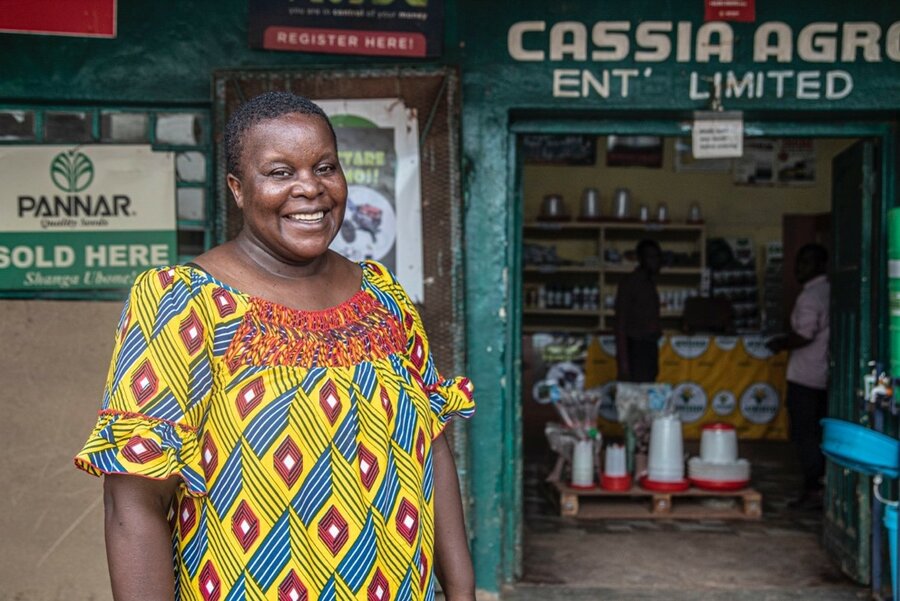
“When I get a contract from WFP, I provide smallholder farmers with the seeds on credit,” says Ederbry Mweendo. “After they harvest, they pay me back for the seeds and sell me their surplus crops”.
Mweendo heads Cassia Agro, one of the 13 aggregators and farmer cooperatives the World Food Programme works with in Zambia to procure cowpeas and beans for its programmes in the southern Africa region.
Last year, WFP committed to procure 1,151 metric tons of commodities through aggregators and farmer cooperatives, valued at almost US$1 million.
Based in Monze district, Mweendo works with WFP to procure pulses from smallholder farmers and to supply airtight hermetic bags – a low-cost, post-harvest tech that reduces food losses of up to 40 percent in the country.
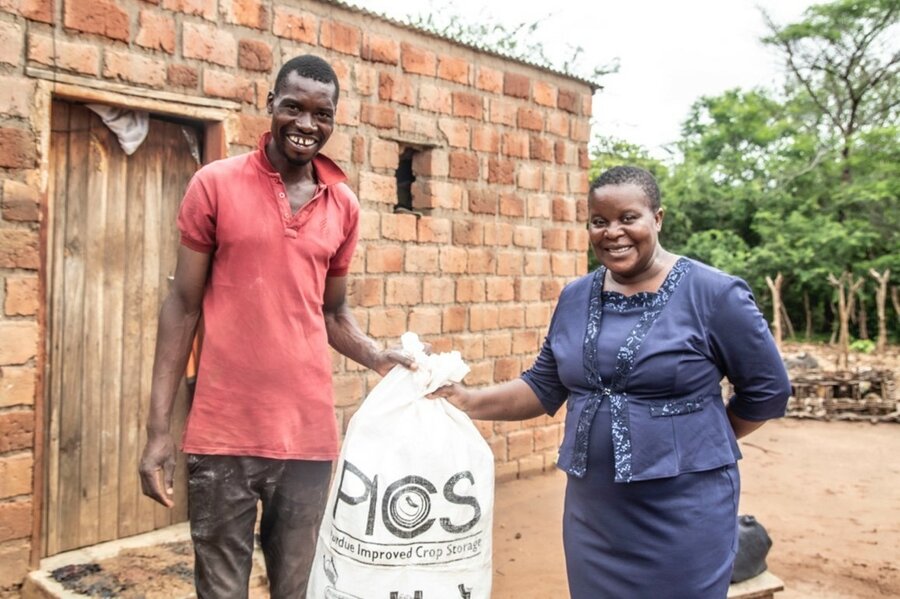
“It gives me peace and comfort to know that the food we are providing to WFP is supporting vulnerable people. It’s a privilege to support their programmes,” says Mweendo.
Food is procured from Mweendo under WFP’s global commodity management platform, which allows food to be purchased in advance of project requests. This reduces delivery lead times and helps aggregators and farmers to better plan their production.
“The airtight bags help smallholder farmers to store the crops perfectly until they sell their crops. They keep crops perfect even after years of storage,” says Mweendo.
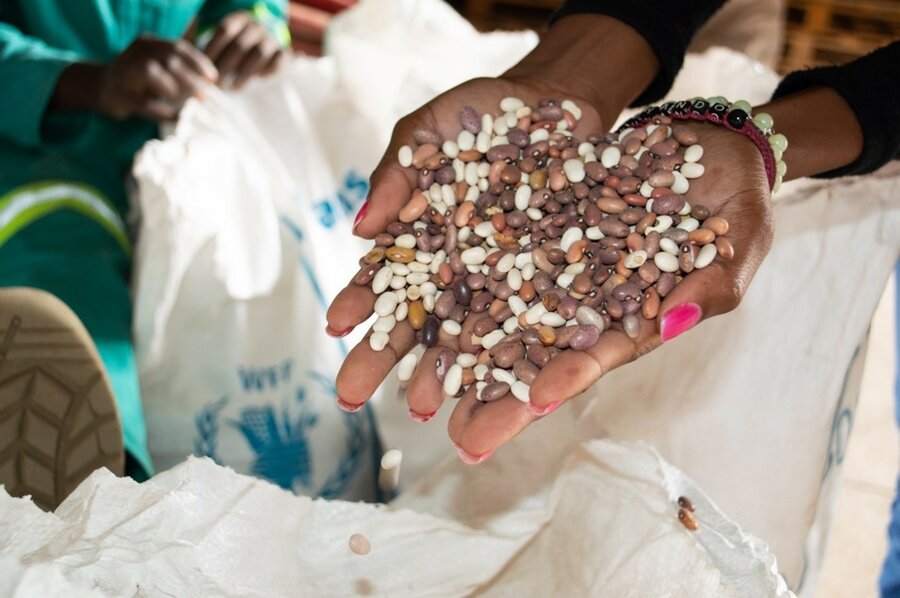
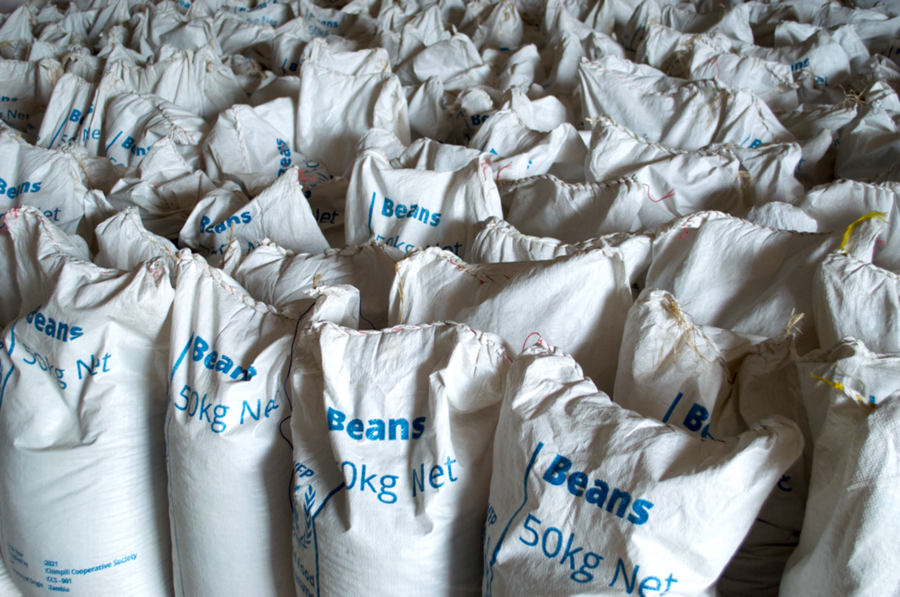
Twaanabo Mwanza is one of the 2,700 smallholder farmers Mweendo buys from to sell to WFP. The 30-year-old grows orange maize, groundnuts, soybeans and cowpeas.
“Before I was introduced to Ederbry [Mweendo], I only used to grow a small amount of pulses. But she taught us about their benefits – they are nutritious, drought-resistant, cheaper to grow than maize, and sell for more,” says Twanabo.
Millions face hunger as drought grips Ethiopia, Kenya and Somalia, warns World Food Programme
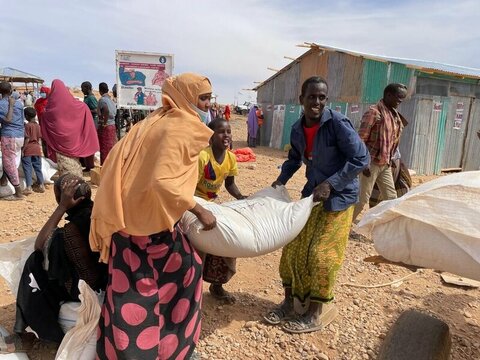
“We smallholder farmers work hand-in-hand with Ederby. She provides us with seeds, airtight hermetic bags and a ready market. Usually, we would guess what to grow and search for markets. But now we are given seeds and sell our harvest back to her,” he says.
This year, WFP procured pulses from aggregators in Zambia to support operations in Angola and Eswatini.
In Eswatini, the beans were provided as part of WFP’s emergency response in the Lubombo region, providing monthly food distributions to nearly 35,000 people who are struggling to put food on the table due to the impacts of the COVID-19 pandemic, limited job opportunities and high food prices.
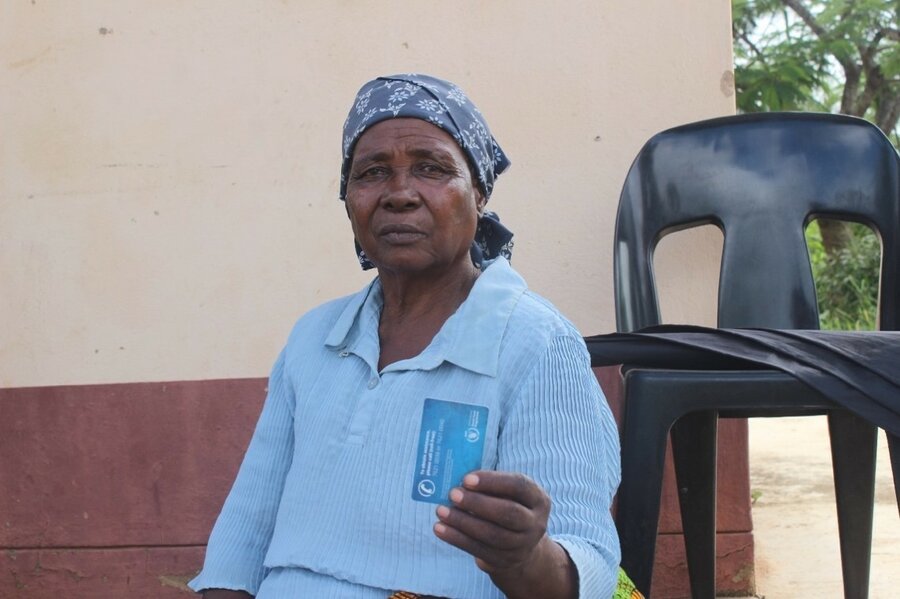
Lungelo is one of the people that received 5kg of beans from Zambia, as well as 10 kg of rice and half a litre of cooking oil.
At the age of 15, he became the head of his household when his mother left their family in pursuit of a job. He had to drop out of school to care for his 78-year-old grandmother living with tuberculosis and and his 13-year-old sister.
“There were days we would go to bed on empty stomachs to avoid asking for food from our neighbours,” he says.
Lungelo found a seasonal job at a local sugar factory, but this didn’t cover all his family’s needs. Now, the food he receives from WFP is helping him to support his family.

“With my seasonal job and the food from WFP, we can lead better, decent lives.... we received the beans just as we needed them,” he says. “Now, I don’t have to worry about my family going to bed hungry.”
His sister, Tengetile, is a big fan of the beans.
“I can’t believe these beans come all the way from Zambia, it’s so far. I will carry five beans to school to show my friends and maybe we can plant them during our science project on germination,” she says.
“Our teacher told us that beans are body building food. I can get the same nutrients that can be found in meat. So even if I don’t get to eat meat all the time, I will still be healthy,” she adds.
Learn more about WFP's work in Nutrition


